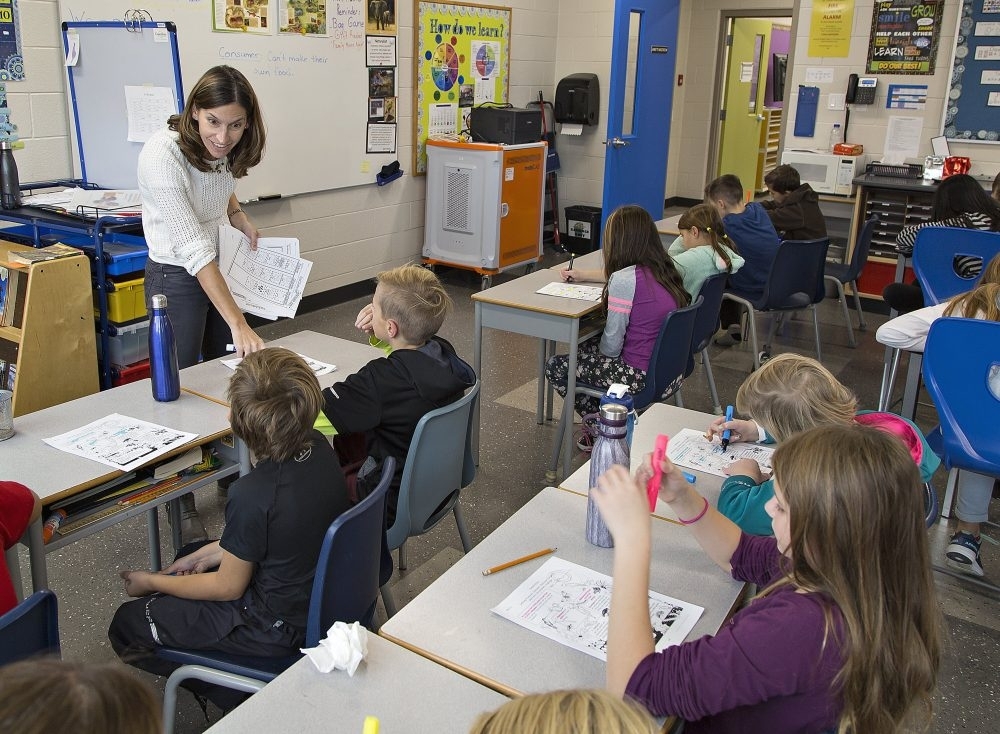Education
Parents Demand Transparency in Winnipeg’s Curriculum Debate

The back-to-school season in Winnipeg is marked by rising frustration among parents regarding their limited involvement in curriculum decisions affecting their children. Families are increasingly feeling disconnected from the educational process, with many expressing concerns over the lack of transparency and consultation in public schools. As significant changes to curriculum content unfold, particularly in areas such as Indigenous history and gender identity, parents are calling for a more inclusive approach to education.
Parents Feel Excluded from Educational Decisions
Recent surveys indicate a growing disconnect between parents and educational authorities. According to a 2023 Fraser Institute survey, 70 percent of Canadian parents desire more input in educational matters, yet only 30 percent feel included in the decision-making process. This has led to a widening gap between families and schools, where parents report feeling like outsiders in a system designed to serve their communities.
The current climate around curriculum changes has become increasingly politicized. Topics such as Indigenous history, gender identity, and sexual education are sparking heated debates, yet parents often find themselves sidelined. Decisions regarding these subjects are frequently made behind closed doors, leaving families informed only after changes are implemented. This lack of dialogue has raised alarms among some parents, who worry that their children are receiving a one-sided education.
The Shift in Historical Narratives
One of the most contentious areas of change is Canadian history education. For today’s students, traditional narratives surrounding Canada’s founding and historical figures are being reexamined. While acknowledging the importance of addressing historical injustices, such as the impact of residential schools and systemic discrimination, some parents express concern that an imbalanced focus may lead to a skewed understanding of their country’s history. They argue that education should promote critical thinking and a comprehensive perspective rather than ideological views.
Consequently, there has been a notable shift in educational choices among families in Manitoba. Between 2018 and 2023, private school enrollment increased by 12 percent, while homeschooling surged nearly 20 percent. Many families are actively withdrawing their children from public schools, citing a lack of consultation and what they perceive as ideologically driven curriculum changes.
This situation is not merely a reflection of political leanings but underscores deeper issues of trust and transparency in the educational system. The erosion of parental involvement threatens to undermine the very fabric of public education. In previous decades, curriculum updates were conveyed through community town halls and public consultations, allowing parents to provide input and influence the educational materials their children would study. Today, such opportunities have become rare, resulting in a classroom environment filled with tension and uncertainty.
To foster a more collaborative educational landscape, parents advocate for a partnership approach with schools. They emphasize that involvement does not equate to control; rather, parents can offer valuable insights that enhance learning outcomes. Incorporating open dialogue, advisory committees, and review panels could be effective ways to ensure that families have a voice in the educational process.
Several states in the United States have successfully implemented parental review panels, demonstrating that family engagement can coexist with academic rigor. This model could serve as a framework for schools in Winnipeg and surrounding areas as they seek to balance transparency, diversity, and academic integrity.
The stakes are high for public education in Winnipeg. When families feel excluded from the educational process, trust diminishes, enrollment declines, and community cohesion suffers. As the new school year begins, it is crucial for parents to assert their right to be heard regarding curriculum matters. Education is at a pivotal juncture, with history being rewritten and values debated.
Public schools will only thrive if families are included in the decision-making process, supporting both students and the educational community. While curriculum debates are a natural part of the educational landscape, exclusion of parents is not acceptable. The future of public education in Winnipeg—and beyond—depends on fostering an environment of collaboration and inclusion.
— Heather Klein is the Editor of The Graphic Leader. For feedback or to share your thoughts on the educational landscape in Winnipeg, contact us at [email protected].

-

 Science6 months ago
Science6 months agoToyoake City Proposes Daily Two-Hour Smartphone Use Limit
-

 Top Stories6 months ago
Top Stories6 months agoPedestrian Fatally Injured in Esquimalt Collision on August 14
-

 Technology6 months ago
Technology6 months agoDark Adventure Game “Bye Sweet Carole” Set for October Release
-

 Health6 months ago
Health6 months agoB.C. Review Reveals Urgent Need for Rare-Disease Drug Reforms
-

 Lifestyle6 months ago
Lifestyle6 months agoVictoria’s Pop-Up Shop Shines Light on B.C.’s Wolf Cull
-

 World6 months ago
World6 months agoJimmy Lai’s Defense Challenges Charges Under National Security Law
-

 Technology6 months ago
Technology6 months agoKonami Revives Iconic Metal Gear Solid Delta Ahead of Release
-

 Technology6 months ago
Technology6 months agoSnapmaker U1 Color 3D Printer Redefines Speed and Sustainability
-

 Technology6 months ago
Technology6 months agoApple Expands Self-Service Repair Program to Canada
-

 Technology6 months ago
Technology6 months agoAION Folding Knife: Redefining EDC Design with Premium Materials
-

 Technology6 months ago
Technology6 months agoSolve Today’s Wordle Challenge: Hints and Answer for August 19
-

 Business6 months ago
Business6 months agoGordon Murray Automotive Unveils S1 LM and Le Mans GTR at Monterey








